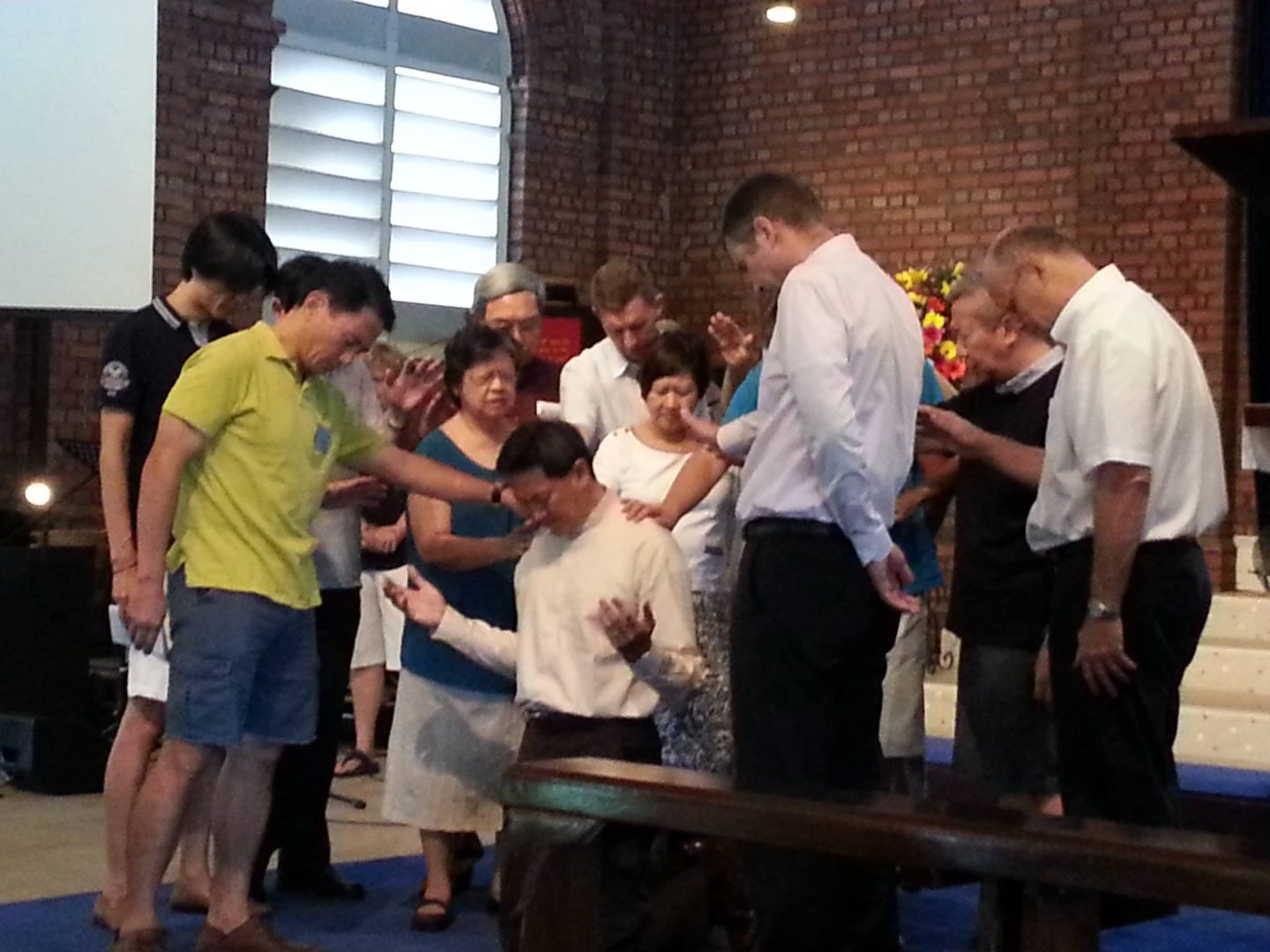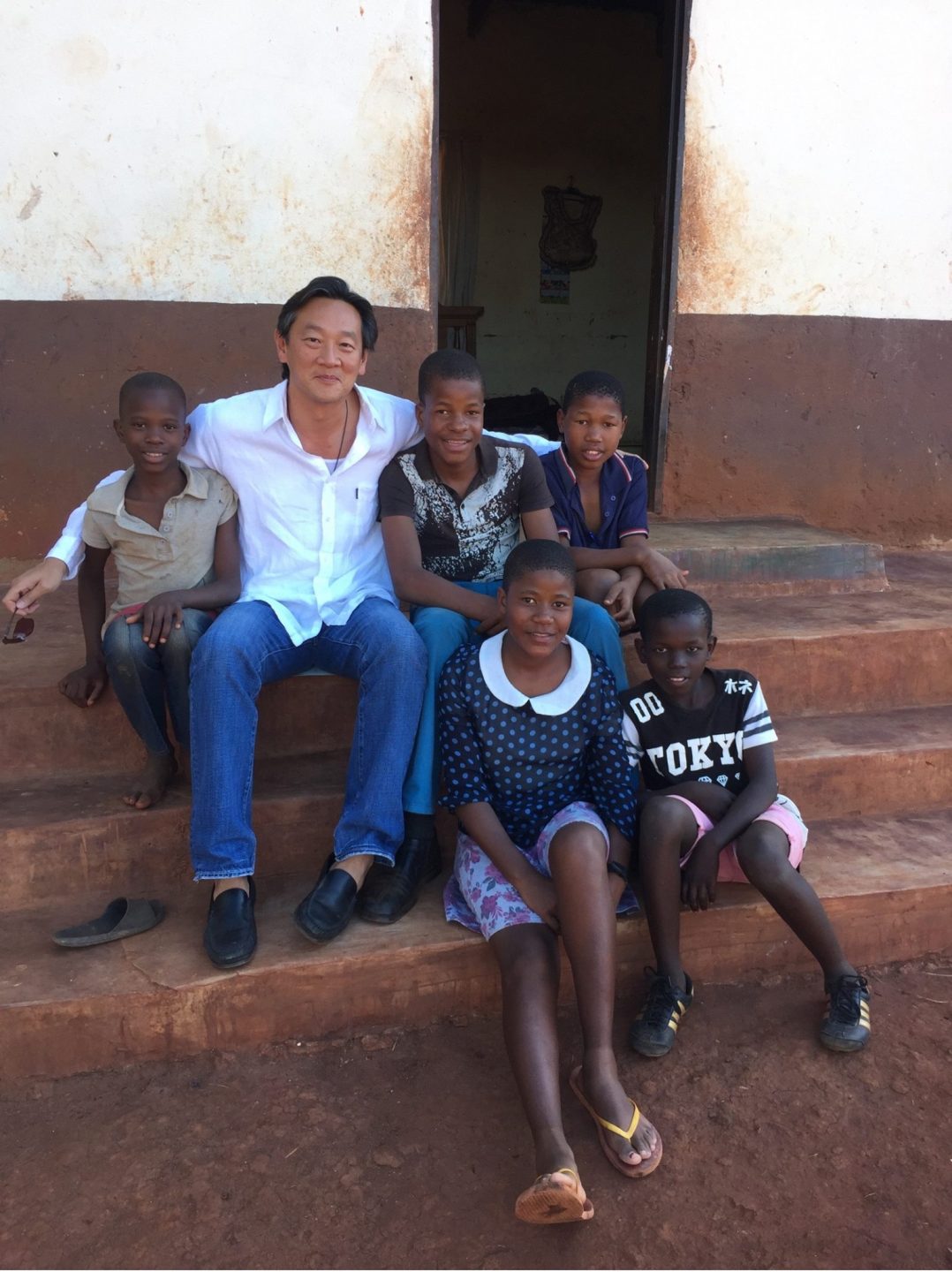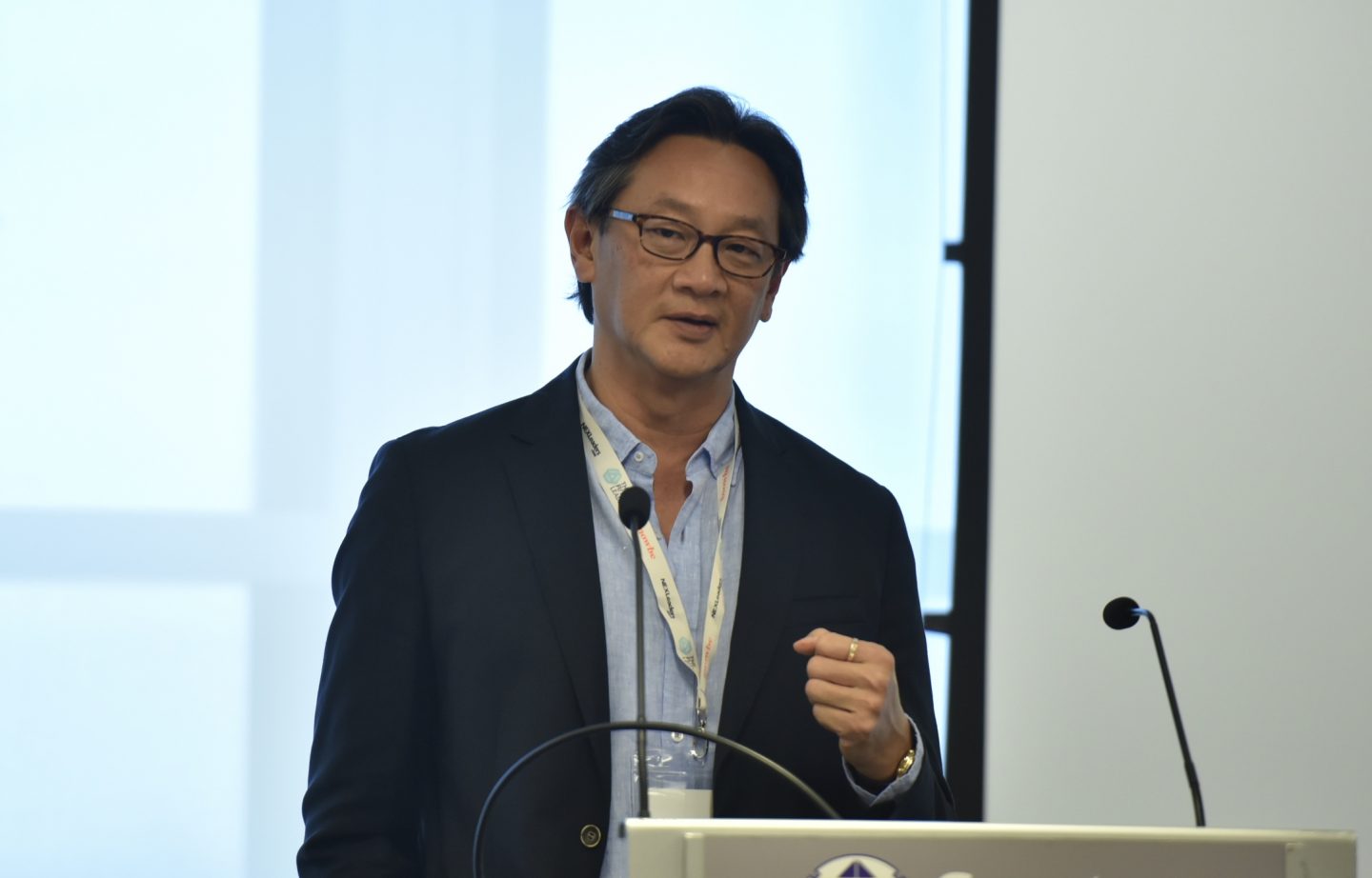Falling into grace: What moral failure taught a reverend about God
by Geraldine Tan // August 30, 2019, 6:08 pm

Twenty-four hours was all it took for Rev Timothy Khoo's life to come crashing down. But “the exposure of my sin saved me from the duplicitous self that I had become”, he revealed. Photo by Andrik Langfield on Unsplash.
“Nobody wants to be defined by the worst thing they’ve ever done. But on this side of heaven, that’s often the case – the worst thing you’ve ever done defines you,” Reverend Timothy Khoo quietly told a small crowd of about 50.
They had gathered to hear him share at an Eagles Leadership Conference 2019 masterclass entitled: Recovering from Leadership Fallout and Moral Failure.
Rev Khoo was sharing from his own experience.
“The real issue at the heart of my wrongdoing was wrong being; it was pride.”
He was once a prominent preacher in one of the main denominations and the former president and CEO of Prison Fellowship International. But all of it was suddenly stripped away on August 30, 2014, following the public exposure of his sin. He had been involved in an inappropriate relationship.
He revealed that “it was significantly emotional; there were physical expressions … but there was no sexual intercourse”.
He did not say this to mitigate his guilt or the depravity of what he had done; quite the opposite. He reiterated that “sin is sin; adultery is infidelity by any standard”. It is the standard set by Jesus in Matthew 5:27-28.
The duplicitous mind
“The duplicitous mind tried to rationalise that because – and I refrained from sexual intercourse for that very reason – I thought that in so doing, I would not be so wrong.
“You get my point? It was completely bogus, right?
“Because infidelity happened way before there was any physical contact. The betrayal happened way before there was any physical contact. But it was the mind that tried to believe that somehow it was not as bad,” Rev Khoo, 54, said.

Rev Khoo, receiving prayer in his former home parish ahead of his installation as Prison Fellowship International’s president and CEO in July 2013. Photo from Prison Fellowship International’s Facebook page.
He referred to the Confessions of St Augustine, where the renowned theologian talked about two particular sins he had committed: One was that he fathered a child out of wedlock and the other was stealing pears from a neighbour’s orchard.
The sin that bothered St Augustine more was the latter.
The child that he sired was conceived in genuine affection. Whereas his petty theft was done simply because he could get away with it.
“It was this endemic sin of pride, of believing that ‘I can have what I want’ without consequence,” noted Rev Khoo.
“The real issue at the heart of my wrongdoing was wrong being; it was pride.”
The fallacy of invincibility
“This is why leaders so often fail, because they think they’re invincible,” observed Rev Khoo. “They often think, I’ve attained this level of respect, responsibility, authority. I have earned the right to be president and CEO, pastor … And I can do what I want and get away with it.
“I realised that there was a duality at play in my life, where I was living life on the surface in one way. But the life beneath the surface was somewhat – putting it mildly – different.”
“I wore a mask and my face had grown to fit it.”
Because of his status and position, he had lost himself. He had allowed his work to define him, instead of defining himself by who he was in Christ.
He recalled looking into the mirror after that day’s fateful events: “I did not recognise the person staring back at me because the person that I was, up to that point, was all about my presidency and all about my priesthood. And all about the attendant accolades and affirmation.
“I wore a mask and my face had grown to fit it,” said Rev Khoo, drawing parallels to a George Orwell essay, Shooting an Elephant.
Searing pain
“Twenty-four hours was all it took for everything to come crashing down. Did it save me from sin? Absolutely.
“It saved me from the duplicitous self that I had become,” said Rev Khoo.
“The exposure of my sin saved me from the duplicitous self that I had become.”
The news devastated his wife, two teenaged sons and family, not to mention the parish and his colleagues. He still grieves about the hurt he caused them and the end of his marriage.
“Five years on, I’m still working through recovery,” admitted Rev Khoo. After a year of church discipline, he was given the option to return to his posts.
But he turned them down “to allow God to mine the very depths of my heart, not just remove this sin but go deeper into the very depths of my heart”.
He added: “It was a necessary, albeit very painful, process.”

With the local children in Swaziland during a Desert Odyssey journey. Photo from Desert Odyssey’s Facebook page.
Close to a year after his ordeal, God’s work in his life inspired him to start Desert Odyssey. He now organises spiritual retreats, where he guides participants on allowing God to mine the depths of their hearts in order to achieve healing and transformation.
“Now you know”
Rev Khoo never likened the way his life turned out to God punishing him. He recognised that this was the consequence of his sin. (Colossians 3:25, 1 Peter 2:20)
Days after everything imploded, he went cycling with his son. As he cycled, God began to speak: “For 25 years and two generations before, you’ve talked about shame, you’ve talked about guilt, vis-a-vis prisoners. You’ve talked about disappointing people you love to prisoners, letting people down, becoming the worst version of yourself.
“Now you know – shame, guilt, what it means to let people you love down, to break their hearts.”
“But you had no clue what you were talking about because you had no experience of it … when you talk to prisoners, it was all theoretical knowledge, theological constructs. Now you know – shame, guilt, what it means to let people you love down, to break their hearts.”
Rev Khoo had to stop the bike as he broke down at those words as he recognised that “this is grace. This is God. This is redemption”.
Then it dawned on him: “When Jesus died, He didn’t say, ‘I suffered so that you don’t have to suffer.’ Instead, ‘I suffered so that your suffering will be like Mine.’
“In other words, it’s a redemptive suffering. Not because He sinned, but because I did. I needed to suffer, I needed to feel every bit of the pain that I was feeling, every bit of the pain that people around me were feeling.” (1 Peter 3:18)
Redemptive work of the Cross
Losing his standing in the world was hard but nowhere as heart-breaking as losing his partner of almost 29 years to divorce.
Though the marriage was lost, God has restored their friendship. His ex-wife has also graciously extended a roof over Rev Khoo’s head, something that he is immensely grateful for.

“Even with the pain and sin of divorce, God still redeems,” said Rev Khoo during the Eagles Leadership Conference 2019 in July. Photo courtesy of Eagles Communications.
“I realised the restoration of the friendship was paramount. If something else follows after that, in terms of the restoration of marriage, I give thanks to God for that. But right now, it’s this beautiful space of friendship,” he said, his voice cracking.
“There is no justification for divorce – the Bible’s very clear on it. But one of the redemptive outcomes of the divorce, by God’s grace, was that my shadow was lifted from her. She was wilting under the shadow of my leadership.”
“Even with the pain and sin of divorce, God still redeems.”
All about grace
It has been a tough journey but, as Rev Khoo looks back, he sees nothing but the grace of God.
Yet there was a notion that he struggled with: “Whenever someone falls from some lofty position, whether in the secular world or in Christian organisations, we talk about a fall from grace.”
“I needed to suffer, to feel every bit of the pain that people around me were feeling.”
He broached the topic with Friar John Wong from Order of Friars Minor, who provided him spiritual direction during that year of church discipline: “Help me understand this. I cannot wrap my mind around how I fell from grace. Because as I understand grace, I can’t fall from it. Because grace is unmerited. So, what have I fallen from?” (Ephesians 2:8)
“Shouldn’t we give thanks for our human nature, as broken as it is? Because we have inexplicably fallen not from grace, but we have undeservedly fallen into grace,” replied Friar John.
“August 30, 2014, was the most dreadful, painful day of my life. But it was a day of grace,” conceded Rev Khoo. He remembered the words from Brennan Manning’s memoir, All Is Grace, that ministered to him during that bicycle ride:
“We have inexplicably fallen not from grace, but we have undeservedly fallen into grace.”
Do you believe that the God of Jesus loves you beyond worthiness or unworthiness, beyond fidelity or infidelity – that He loves you in the morning sun and the evening rain – that He loves you when your intellect denies it, your emotions refuse it, your whole being rejects it. Do you believe that God loves without condition or reservation and loves you this moment as you are and not as you should be.
“He wants us to be the best, but He doesn’t love us so that we can become the best. He loves us as we are, not as we should be. That is God, the unconditionality of God’s love. And He knows that the freedom from sin allows us to be the best that we can become. But He doesn’t love us because of that. He loves us in spite of that, He loves us as we are,” reminded Rev Khoo.
“The message going out was the realisation of the weight of my sin. The revelation coming back is that all is grace. And so August 30, 2014, became for me, a day of grace.”
We are an independent, non-profit organisation that relies on the generosity of our readers, such as yourself, to continue serving the kingdom. Every dollar donated goes directly back into our editorial coverage.
Would you consider partnering with us in our kingdom work by supporting us financially, either as a one-off donation, or a recurring pledge?
Support Salt&Light



